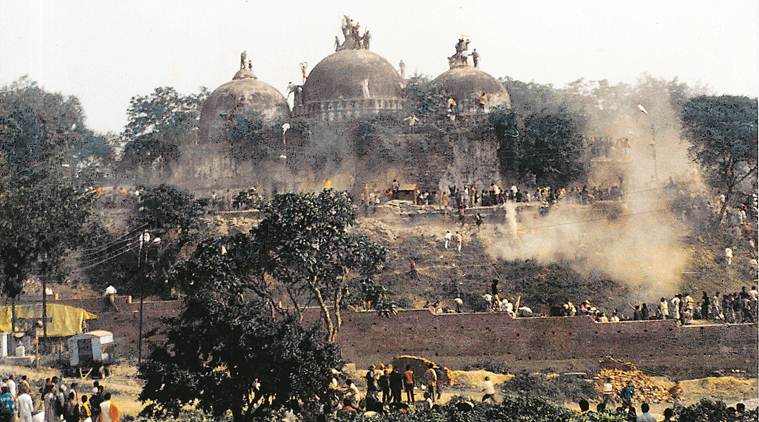A Rotten Compromise
Impasse in Babri masjid case is better than ceding ground to a radical evil.

Rajmohan Gandhi wishes us to rebuild India, return it to some civility, and restore Hindu-Muslim relations. And he feels that unless the Ram temple issue is resolved, we cannot achieve this (‘A new temple, a new mosque’, IE, February 6).
Like a festering wound, it has not let the nation be at peace for decades. He also treats it like a dispute, which has two competing parties and suggests that under the direction of the Supreme Court, the two can strike a compromise. The Hindu desire to see a magnificent Ram temple at the very site of the Babri masjid should be recognised by the Muslim side and it should cede ground for that. The Hindu side needs to acknowledge the “error” of demolition of the mosque and allow a masjid to come up “not too close” and yet “not too far” from the site.
Rajmohan Gandhi is not wrong when he says that for peace, some negotiation is required. We must compromise for peace, even if it means giving up justice to an extent. Should the Muslim side be so obstinate as to fail to admit a Hindu desire for a Ram temple at his birth place? Would the Hindus not be sagacious enough to allow a masjid at a place not far from the newly-constructed temple? But the question is: Who represents the Hindu side — is it the Nirmohi Akhara or the Hindu Mahasabha? Or, is it the Vishwa Hindu Parishad, RSS and the BJP?
The years following the demolition of the Babri masjid have made it clear that the driving force behind the Ram Janmabhoomi campaign was political, couched in the language of the holy. It was admitted by the leader of the campaign, Lal Krishna Advani himself, that it was a political movement. So, it should be clear that it is not a Hindu desire but a political design using the Hindu as a cover.
Also, the symbolism behind the act of the demolition of the mosque cannot be missed. It was, essentially, an act of war against Muslims in which the Hindu might prevailed. The conceit and treachery of the act was justified by the Hindu maxim of achieving your objective: “Sama Dama Danda Bheda”. But even before that, the act of making a living mosque dead had many conspirators including the first chief minister of Uttar Pradesh, Govind Ballabh Pant. He was emboldened by the support from Sardar Patel who thwarted all moves by Jawaharlal Nehru to get the mosque restored to its original use by removing the idols placed in the mosque surreptitiously.
The story of Babri masjid, therefore, has to be a narrative comprising a series of compromises: By the state with the marauders, in the name of peace. It begins with the smuggling of the idols into the mosque in 1949 and continues till the permission of the Supreme Court was acquired for the gathering of lakhs of Hindus at the site of the mosque to do a symbolic kar seva.










.png)




























No hay comentarios:
Publicar un comentario